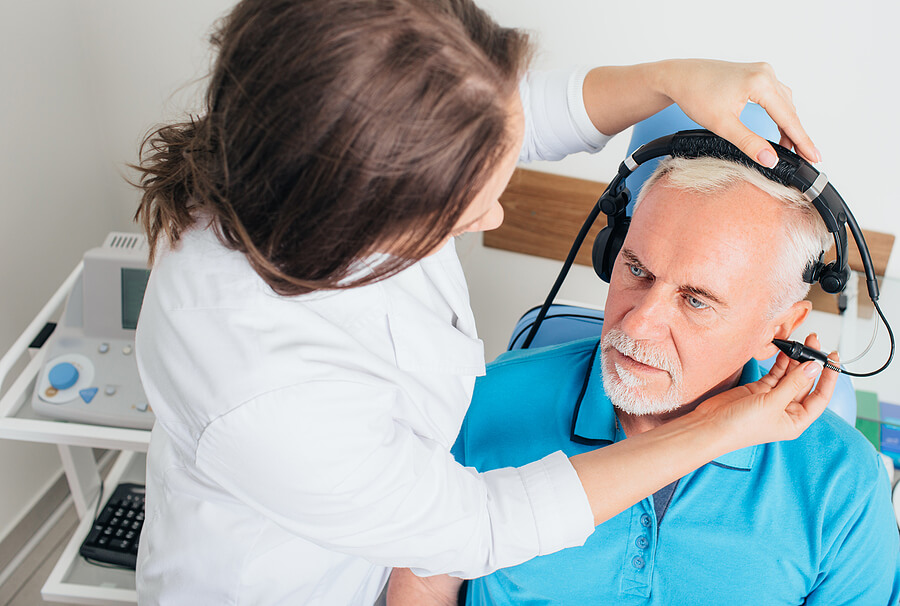Getting Ready for Your Hearing Test

Whether you’ve noticed changes in your hearing or it’s simply time for your routine check-up, preparing for a hearing test is essential to ensure accurate results. This comprehensive guide will walk you through the steps to make the most out of your hearing evaluation.
Choose the Right Audiologist
Selecting a qualified and experienced audiologist is the first step in preparing for your hearing test. Look for professionals who are licensed and have a good reputation. Reading reviews and asking for recommendations from friends or family can help you find the right expert to assess your hearing.
Schedule an Appointment
Once you’ve chosen an audiologist, call and schedule an appointment. Be prepared to discuss your hearing concerns, any specific symptoms you’ve noticed, and your medical history. The audiologist will use this information to tailor the hearing test to your needs.
Bring a Friend or Family Member
It can be helpful to bring a friend or family member with you to the appointment. They can provide emotional support, help you remember important details discussed during the appointment, and offer insights into your hearing difficulties from an observer’s perspective.
Gather Information About Your Hearing History
Before the appointment, take some time to jot down notes about your hearing history. Include any incidents or circumstances that may have contributed to your hearing loss, such as exposure to loud noise, illnesses, or medications you’re taking.
List Your Medications and Medical Conditions
Compile a list of all the medications you’re currently taking, as well as any medical conditions you have. Some medications and health conditions can affect your hearing, and this information will be valuable to your audiologist.
Prepare Questions
Prepare a list of questions you have for your audiologist. These might include inquiries about your hearing loss, available treatment options, and recommendations for hearing aids or other assistive devices. Having questions ready ensures you get the information you need.
Dress Comfortably
Choose comfortable clothing for your appointment. You want to be at ease during the test, as stress or discomfort can impact your results. Avoid clothing with noisy zippers, jewelry, or accessories that could interfere with the testing process.
Be Ready for the Hearing Test
During the hearing test, you’ll be asked to respond to various sounds, tones, or words. Pay close attention and respond honestly, indicating when you can hear the sounds. Relax, and trust that your audiologist is there to help you.
Understand the Results
After the test, your audiologist will discuss the results with you. Take the time to understand your hearing status, the degree and type of hearing loss you may have, and what the next steps should be. Don’t hesitate to ask for clarification if anything is unclear.
Discuss Treatment Options
If your hearing test reveals hearing loss, discuss treatment options with your audiologist. This may include hearing aids, assistive listening devices, or referrals for further medical evaluation. Be open to exploring the solutions that best suit your needs and lifestyle.
Consider Your Lifestyle and Needs
When choosing hearing aids or assistive devices, consider your lifestyle and specific hearing needs. Discuss your daily routines, work environment, and recreational activities with your audiologist to ensure you select the most appropriate technology.
Follow-Up Appointments
Plan for follow-up appointments as recommended by your audiologist. These appointments are crucial for fine-tuning your hearing aids, addressing any concerns, and ensuring that your devices continue to provide optimal performance.
If you’re prescribed hearing aids, take the time to learn how to care for them properly. Understanding how to clean, maintain, and troubleshoot your devices will prolong their lifespan and ensure they function effectively.
Stay Informed
Stay informed about advances in hearing healthcare and technology. The field of audiology continually evolves, and being up to date can help you make informed decisions about your hearing health.
Empower Yourself for Better Hearing
Preparation is key when it comes to a hearing test. By following these steps and staying proactive in managing your hearing health, you’ll be better equipped to navigate the process and make the most of your appointment. Remember that your audiologist is your partner in hearing health, so don’t hesitate to reach out for support and guidance along the way.
